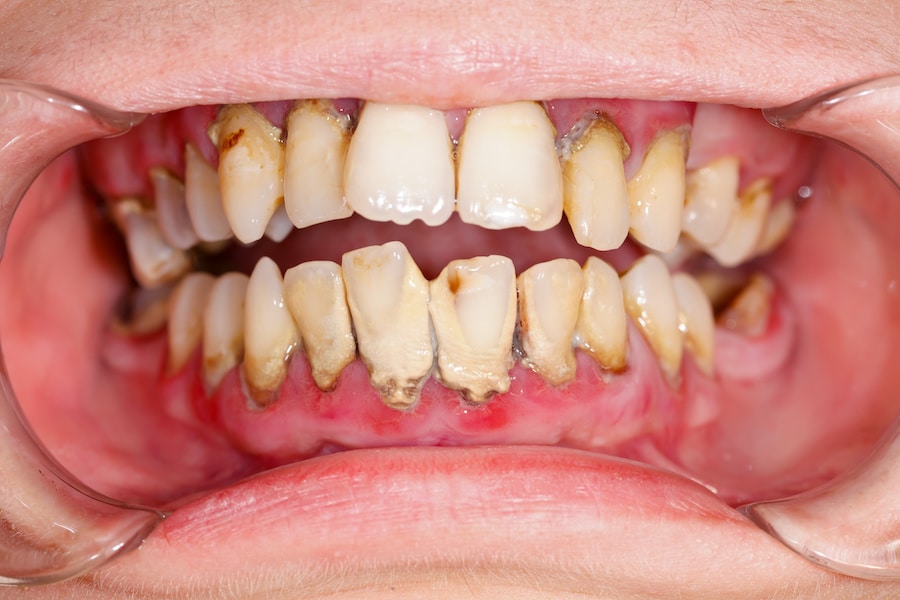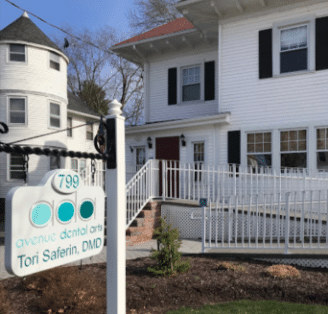At the end of a long day, when you’ve finally climbed into bed and begun to relax, the last thing you want to do is get up–for any reason. And if the reason that you’re even contemplating getting out of bed is because you forgot to brush your teeth, you may decide that it’s just not important enough to demand that you leave your cozy spot. In this case, you may believe that skipping your nightly tooth brushing routine on a rare occasion (as long as you truly ensure that it is rare, and doesn’t become regular habit) is not a problem. However, this is actually an incorrect assumption, and not entirely beneficial to your oral or overall health.
The Importance of Nightly Tooth Brushing
You already know that it’s important to brush your teeth twice every day and floss them once every day, but you may not know precisely why. Of course it’s nice to eradicate bits of food that have wedged themselves in between your teeth and handle the overpowering aroma of tasty food, but there’s much more. Not only does regular brushing and flossing make your breath smell fresher and help to eliminate unsightly leftover food particles, they can help to seriously reduce or even eliminate harmful oral bacteria. And this is something you most definitely want to keep up with.
Your mouth is filled with bacteria–this is its natural state and it is totally fine. However, some of these bacteria can be harmful, and they therefore need to be routinely removed. When these bacteria are allowed to remain in your mouth and in contact with your teeth and gums, they begin to produce acids that erode your tooth enamel and attack and irritate your gums. Over time, these bacteria can build up into the sticky film we know as plaque, which in turn can become hardened tartar if left unhandled. Unfortunately, no amount of lengthy or vigorous brushing at home can remove tartar buildup, which means it will remain on your teeth (keeping harmful, acid-producing oral bacteria in contact with your teeth,) until your next dentist appointment.
When you go to bed without brushing your teeth–even once–you are leaving harmful oral bacteria in contact with your teeth and gums all night long. Since brushing displaces plaque and allows it to be removed from the mouth, lack of brushing can protect and encourage plaque growth and may even enable some plaque to convert to tartar. This ugly, hard, rough, yellow substance not only creates a way for harmful oral bacteria to remain in constant contact with your teeth, which leads to tooth decay and even tooth loss, it can also cause gum inflammation and bleeding, or even gum disease.
Some individuals believe they can counteract the harmful effects of failing to brush their teeth at night by simply brushing more vigorously in the morning. The idea is that they will be able to remove the plaque and leftover food particles in the morning, and all will be well. While this may seem to make sense, it doesn’t really work that way. When you brush your teeth at night, you remove harmful oral bacteria that have already accumulated there, laying a cleaner foundation for the next 6-10 hours. Skipping this brushing and then brushing more vigorously in the morning does not undo the damage that the harmful oral bacteria has wreaked in your mouth for the 6-10 hours you were sleeping.
The Bottom Line
While it may be difficult to get up once you’ve already become comfortable in bed (and we definitely understand that), it’s so incredibly vital to your oral health to do so if you have forgotten to brush your teeth. In all likelihood this will even better help to prevent you forgetting again in the future–so you won’t have to get out of bed to brush your teeth in the future.
For more information about your oral health or to learn valuable tooth brushing tips, contact Avenue Dental Arts today!


